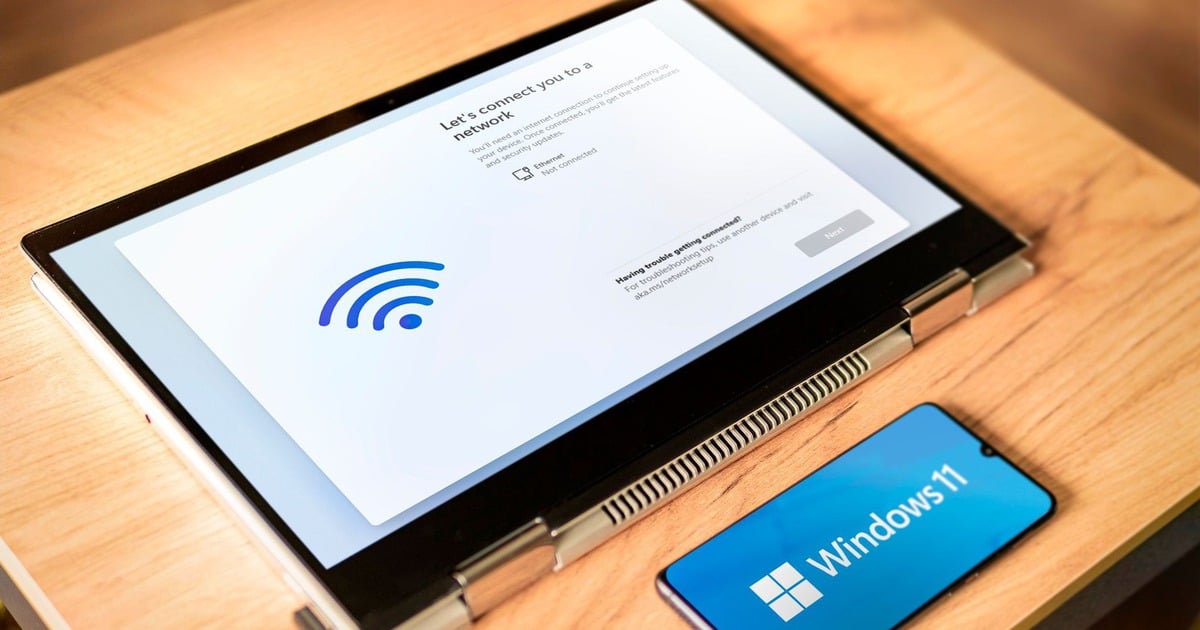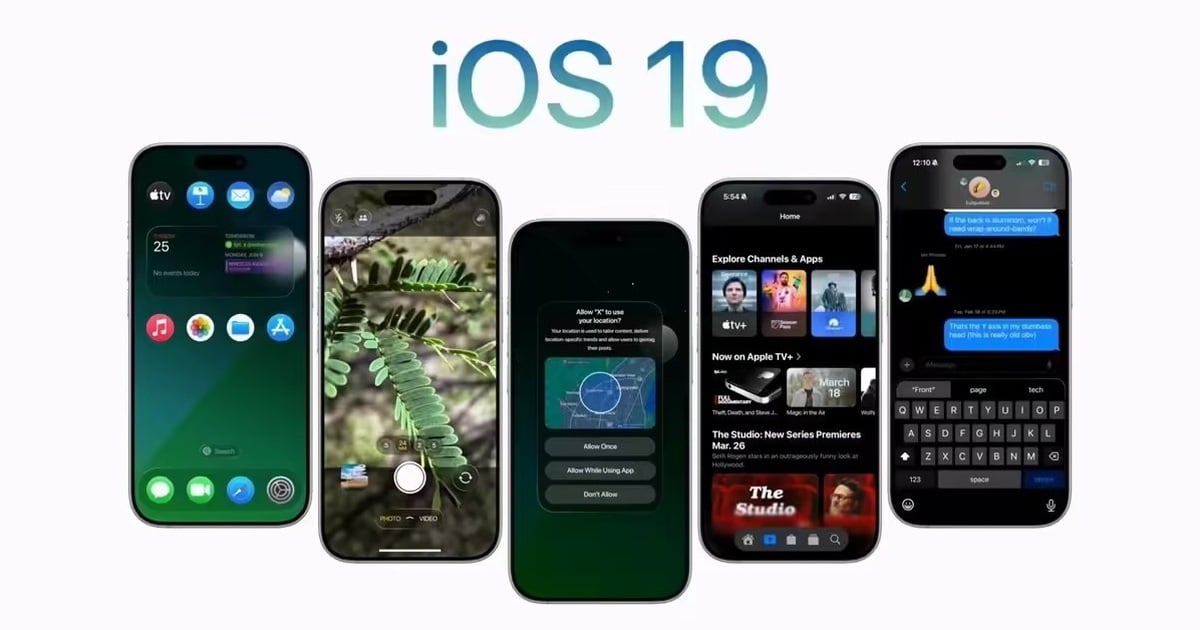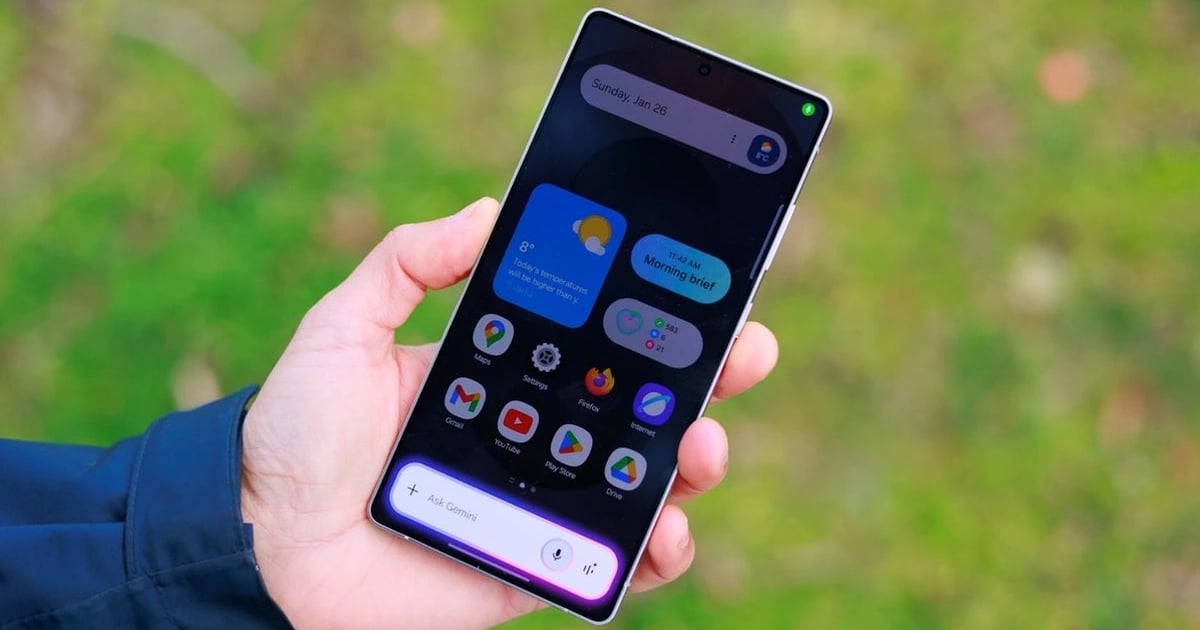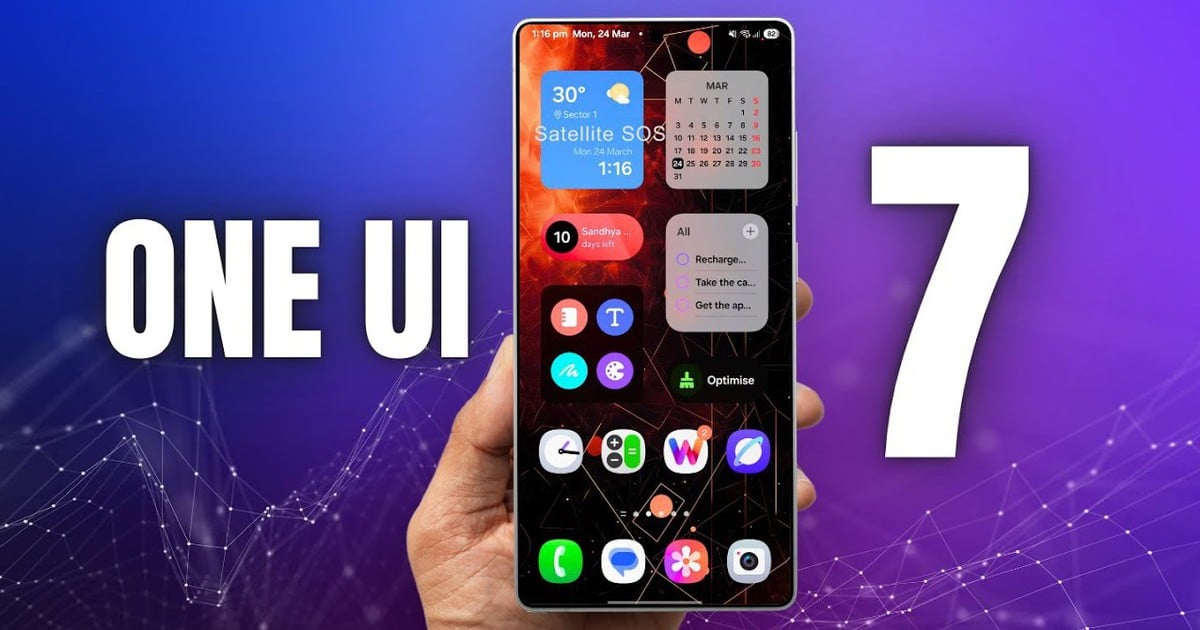Faced with the problem of online fraud targeting internet and mobile phone users in Vietnam, causing property and mental damage to people, the National Cyber Security Association has developed the nTrust application (a tool aimed at preventing online fraud). However, for this tool to work effectively, it requires the participation of users.

Block scam calls
nTrust software is installed on smartphones, released for free to users on July 30. The application development team has researched 24 forms of fraud as well as combinations of variations that scammers have used in Vietnam to form a basic system of fraud forms, build the features of the application. Installing the application is also quite easy, just go to the CH Play application store for Android phone users and App Store for iOS users to download and follow the activation instructions.
According to the National Cyber Security Association, the nTrust application contains a database of information on scammers updated by domestic ministries and agencies such as the Ministry of Public Security, the Ministry of Information and Communications, the State Bank and other relevant parties. This application will also connect to the database of cybersecurity companies, members of the National Cyber Security Association, international anti-fraud organizations... However, to promote its features, the application needs the participation of users in "reporting".
“On the nTrust application, a feature that I find useful is allowing users to create a “blacklist” of scam or unwanted phone numbers to avoid being bothered. To use this feature, access the “Check Phone Number” section on the main interface of the application, then select “Black List” from the interface that appears. Here, you press the “Add phone number” button and enter the phone numbers you want to block calls from. In this feature, users can also activate the “Send report” option if they want to send the phone numbers to be blocked to the nTrust database. With this method, not only scam or annoying phone numbers, users can ask nTrust to block calls from people they don’t like to avoid being bothered. This is one of the operating mechanisms of nTrust and thus avoid being bothered by spam calls, advertising calls… ”, Mr. Hai Son, an office worker in Binh Thanh District (HCMC) shared after installed the app and used it for the past week.
In addition, nTrust also allows users to check whether their smartphone has accidentally installed an application containing malware. Users click on the “Scan for malware” icon in the menu below, then click on the “bug” icon that appears on the interface. After the scan is complete, nTrust will notify users of the number of applications installed on the phone and the amount of malware detected. The application also provides a web address checking function, helping to detect fraudulent websites, websites containing malware or fake websites, etc.
Not a “magic wand”
According to statistics from nTrust's management system, after 20 days of launch, there have been about 150,000 downloads of nTrust from the two app markets Google Play and Apple Store. The number of regular users has exceeded 100,000 users. Every day, the nTrust application receives 3,000-5,000 reports, mainly related to scam and annoying phone numbers. The data is processed by artificial intelligence (AI), combined with verification through open data sources, compared and cross-checked with the existing credit data list. From here, the application updates about 70,000 new records from the community's reporting data source, mainly reports on scam and annoying phone numbers.
Mr. Vu Ngoc Son, CTO of National Cyber Security Technology Company (NCS), chief architect of nTrust software, said: “nTrust software is part of the 2024 core plan of the National Cyber Security Association. Data sharing is strictly in accordance with the provisions of Decree 13 on personal data protection. Accordingly, nTrust will send the data to be checked in hash form (standardized, encrypted and irreversible data) to compare with the data in the database of the competent authority (previously hashed). The returned result is only a classification of data including fraud, harassment, etc. and when there are results, nTrust will return the results to the user. This process is completely automatic, only comparing on encrypted data, irreversible and without human intervention”.
However, according to the National Cyber Security Association, software is not a "magic wand", it is just a tool to help people detect signs of fraud to proactively prevent it. The final decision is still the user's skills and awareness. Here, the nTrust application will maximally support the detection of fraud and harassment in cyberspace; if the application issues a warning but the user continues to make transactions, the risk of having money in the account stolen still occurs. Therefore, to truly prevent fraud, each person also needs to improve their skills and understanding of common forms of fraud in cyberspace, especially, it is necessary to build a community on fraud prevention.
The current difficulty for the nTrust development team is that it is not possible to bring the malware scanning feature to the iOS version. This is a difficulty due to the developer policy set by Apple. Apple always affirms that no malware can run on the iOS operating system (although in reality there is still malware) and does not grant any rights to applications to develop malware scanning features... so hopefully in the future Apple will have more open policies with software developers. Only then will nTrust be able to scan malware on iOS products.
BA TAN
Source: https://www.sggp.org.vn/ung-dung-ntrust-chong-lua-dao-truc-tuyen-tang-hieu-qua-tu-su-tham-gia-cua-nguoi-dung-post755141.html


![[Photo] A long line of young people in front of Nhan Dan Newspaper, recalling memories of the day the country was reunified](https://vstatic.vietnam.vn/vietnam/resource/IMAGE/2025/4/28/4709cea2becb4f13aaa0b2abb476bcea)
![[Photo] People lined up in the rain, eagerly receiving the special supplement of Nhan Dan Newspaper](https://vstatic.vietnam.vn/vietnam/resource/IMAGE/2025/4/28/ce2015509f6c468d9d38a86096987f23)


![[Photo] Signing ceremony of cooperation and document exchange between Vietnam and Japan](https://vstatic.vietnam.vn/vietnam/resource/IMAGE/2025/4/28/e069929395524fa081768b99bac43467)
![[Photo] Special supplement of Nhan Dan Newspaper spreads to readers nationwide](https://vstatic.vietnam.vn/vietnam/resource/IMAGE/2025/4/28/0d87e85f00bc48c1b2172e568c679017)

























![[Photo] Readers in Dong Nai are excited about the special supplement of Nhan Dan Newspaper](https://vstatic.vietnam.vn/vietnam/resource/IMAGE/2025/4/28/82cdcb4471c7488aae5dbc55eb5e9224)































































Comment (0)